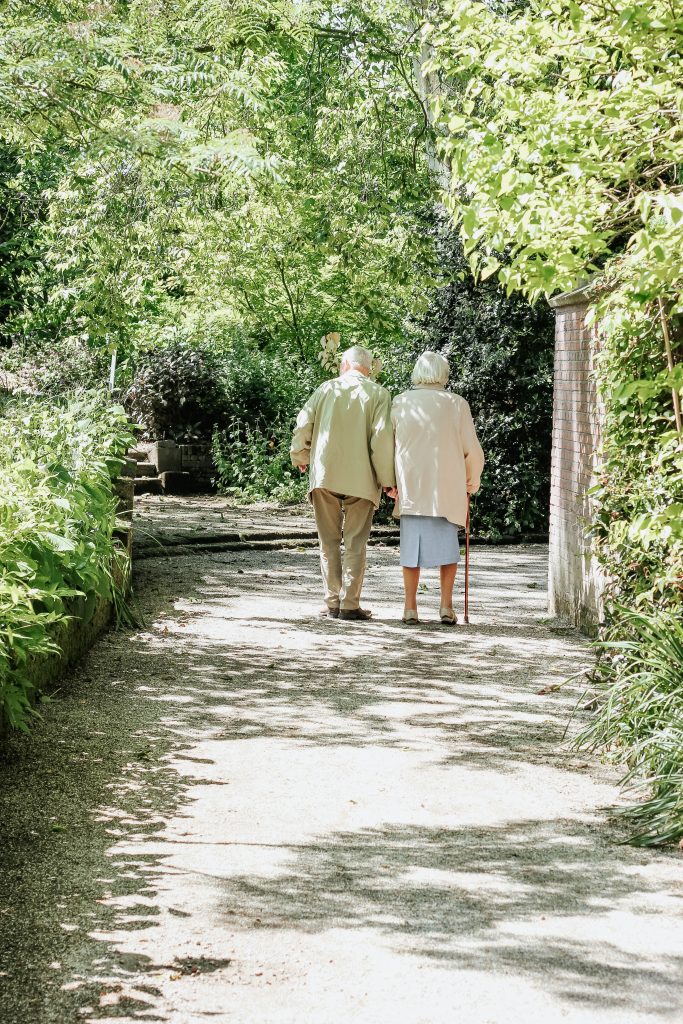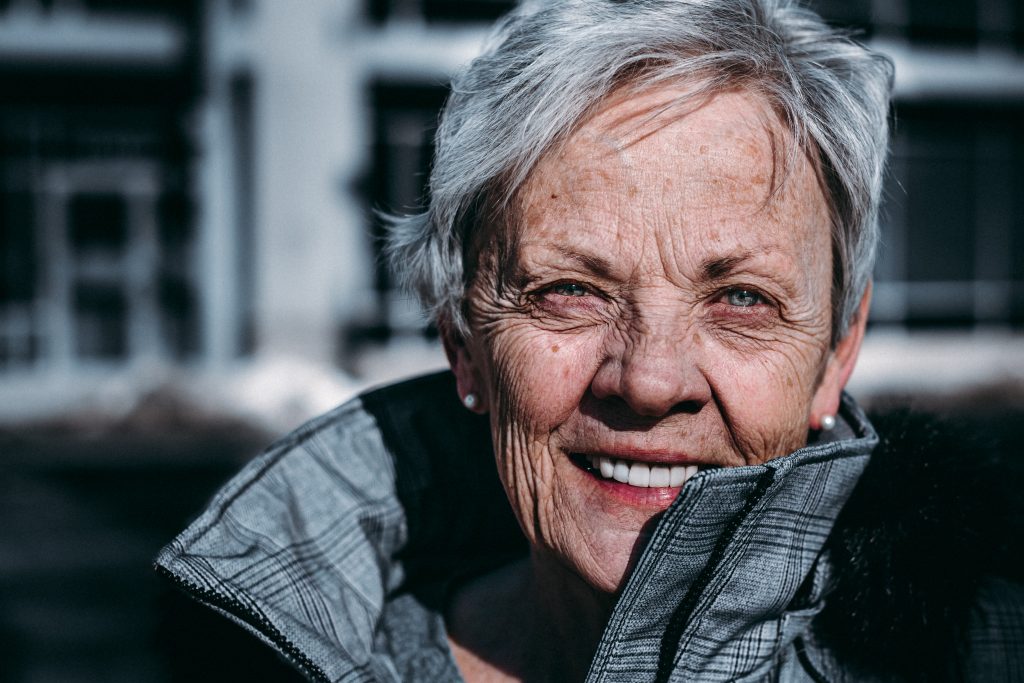Finding yourself caring for a vulnerable loved one during the Coronavirus pandemic can be extremely scary. The feelings you are experiencing in this moment may be overwhelming. Some of us fear the worst, while others are just trying to keep our loved ones safe and think positively. Know that there are strategies that can help while caring for, living with, or even loving from afar, someone who is vulnerable to the COVID19 virus.
Perhaps your loved one is someone who is older or immunocompromised… or both…. This is a worrisome time filled with uncertainty and too much information to sift through. Please keep reading for some meaningful information on how to support your vulnerable loved ones during the COVID19 pandemic.
These days everything you see on the news and social media is filled with fear…. And with good cause.
But you are living with someone (your partner, your Dad, your Grandfather) who is vulnerable. What does this mean? It means they are more susceptible to serious life-threatening illness due to COVID19. You hear these words and all you can think of is “How do I protect them?!, What can I do?” As a result of all that is reported on the news and being inundated with contradicting information, you might feel scared, angry, depressed and this all seems pretty hopeless. You try to be brave but sometimes feel incredibly discouraged. You wonder just how long you can live like this and when things might feel normal again.

Eventually your feelings increase with each day of bad reports on the news. Maybe you are a vulnerable person’s caretaker and still have to work from home… or perhaps you are trying to take care of the kids, homeschooling and have an immunocompromised family member. Your responsibilities seem so split and you are deep into juggling many different roles. You and your family are definitely feeling the stress.
Meanwhile, your vulnerable loved one is complaining that they need some fresh air and wants to get out of the house for a little while.
You begin to wonder if this social distancing is taking a toll on them. Afterall, we all need social connection. Please know that you are absolutely not alone!! The entire world is feeling these types of feelings at this very moment. Being able to effectively help your loved one in this time is vital and will ease your stress levels too. Managing right now is something we are all striving to do and do well. It is perfectly normal to feel the feelings you have currently.
It’s true that learning ways to help a vulnerable loved one in today’s climate is extremely challenging, however, there are ways to support them effectively and share important strategies and information with them that can benefit and comfort them in this experience. In addition, you may develop a new connection with them that sparks some much needed joy in your vulnerable loved ones lives.
Not fully understanding the needs of your vulnerable loved one may leave you feeling angry, misunderstood and disconnected. You may feel resentment because it seems as if they aren’t taking this pandemic seriously. Maybe you take it personally because it seems like they are putting themselves at risk and you love them so much and worry about their health. You also may notice yourself “parenting” them, which only upsets them as they don’t want to be told what to do or how to live their lives. This only makes it harder to live with them and care for them under a quarantine…because you are both under high stress, stuck together and completely misunderstanding each other.
When you choose to really understand your loved ones needs… you can begin healthy communication with them about COVID-19.
Starting to hear their point of view and understand and validate their fears (or lack of fear). You can then authentically express your own fears, wants and needs for your loved one. Instead of avoiding hard discussions, or pushing down your feelings, you can really use this opportunity to connect with your vulnerable loved one and express just how much you love and care for them.
We are all currently feeling lost, alone or overwhelmed in some way or another, however, it doesn’t have to feel this way. Supporting your loved one during this transition in the world is an important responsibility. It is imperative to help them in a variety of ways so they can navigate this uncertain moment with at least this one certainty… that you have 100% got their back and have their best interests in mind. It is entirely possible to do this with the utmost grace and tenderness, while simultaneously and diligently protecting them.

How to Support Vulnerable Loved Ones during the COVID19 Pandemic
Support #1. Practice Empathy
Empathy is defined as the practice of understanding and sharing the feelings of another. Perhaps you are confused that your vulnerable loved one wants to go shopping at the market during this pandemic. What are they thinking?! Why can’t they be more careful??
It is important to realize that maybe your loved one is a widow or widower and they already feel alone and don’t want to be a burden to you, in your home. Perhaps they already do feel like a burden and want to contribute by picking up some groceries. It could also be that they don’t quite clearly understand the severity of the pandemic. Maybe they are a veteran and survived a war or a major illness and they have seen serious illnesses in the world come and go. Or maybe they don’t quite understand it well because they are getting older or becoming cognitively impaired.
One thing to realize and always remember is that your vulnerable loved one is 100% A STRONG SURVIVOR! The very fact that they are alive, dealing with the medical condition they have that makes them immunocompromised or being the age that they are…is proof that they have already lived through something that you yourself may not even understand.
You don’t know what that is like, exactly to live the way they have lived. Practicing empathy for your loved ones includes talking about and understanding these differences. One way to better understand your loved one is to ask them their “story”, if you don’t already know it… and get a sense of how the world was when they were taking care of others, instead of being taken care of. Having understanding for your loved one’s past experiences can really connect you to them and help establish empathy for things that are important to them, including their need for a sense of independence and to find meaning in a time like this.
At Simi Psychological Group, we focus on issues like this. Many of us have personal and professional familiarity in this arena. We have experience in helping immunocompromised, elderly and vulnerable clients (and those who love them) and know how difficult it is caregiving in a normal world climate, versus today’s stressors with the intensity of COVID19. Allow our team of psychologists and therapists to support your family anxiety with Covid19 during these delicate times with online therapy. Stressors are high, and conflicts tend to arise strong during these times.
Support #2. Keep Yourself Well
Sometimes when under severely stressful situations, we tend to care for everyone else except ourselves. Especially when you have a vulnerable loved one at home who may need extra care… you find yourself working at home, caring for children, homeschooling, ect, ect. It all seems to be running together and you are forgetting who took their medications and who needs what in the moment.
Not keeping yourself well only exacerbates the problem. This means that you cannot help any of your loved ones effectively, nevertheless a loved one who is vulnerable and/or immunocompromised. We all know the ways to keep the pandemic away: Wash your hands, stay indoors, don’t touch your face, but this is about much more than that… This is about keeping yourself well in a deeper way…
Taking scheduled breaks, time out and space for yourself will not only give you a well needed break but it will leave you feeling more refreshed to help your loved ones better. In addition, it’s difficult to lead a family when you are depleted. Know that there are always eyes observing how you handle stress in any avenue of life, whether it is your place of employment, your children, your partner or your vulnerable loved one. When you are strong and resilient, everyone seems to look at you for leadership. If your intention is to inspire hope and encourage your loved ones, then you need to be well first.
This means going on a (socially distant) walk, listening to relaxing music and tuning everything out, a virtual happy or coffee hour with friends on Zoom… something just for you… When you are fully taking care of yourself first, then and only then can you be of service to those around you. We’ve all heard of the example with the airplane and the oxygen masks, right? Put your own mask on first…. So you can breathe… then you can help others…
At Simi Psychological group, our team of therapists and psychologists take self-care seriously. Whether it’s prayer or meditation, exercise or stillness. Self-care is a must right now…. Many believe that therapy is the first form of self-care. At Simi Psychological Group, we provide telehealth online therapy, which means we have HIPAA compliant mental health services that are easy to use (even for those who aren’t that tech savvy). It’s the best way to work through anxiety from the comfort of your own home, while not exposing anyone vulnerable to COVID19. We are here to support you through Coronavirus anxiety.

Support #3. Teach Them
During this time, the world is learning how to virtually connect through technology….but what about Grandpa, who doesn’t have a smartphone? Or how about your immunocompromised loved one who is very ill with other medical issues and is too exhausted or fatigued to learn how to invite others to chat online. Why not teach them? Make it easier for them to feel included and connected.
Have a sit down with your loved one and show them how to get online, or use that dusty old iPad, they never pick up because it’s too complicated. Get your loved ones caught up with technology by showing them and also writing the steps down for them. Then have them try it on their own, with a test call or Facetime to you. Also, show them how to use the Accessibility features to make the font bigger so they can see it easily and clearly. Help them to feel included and more secure with using their devices… and I cannot express this enough…. HAVE PATIENCE. They may have been the ones to teach you (or your parents) to use a spoon, you can absolutely teach them how to navigate the internet in the simplest ways.
At Simi Psychological Group, we learn ways to communicate with others in a way they will understand. Practicing compassion while teaching your loved one how to connect technologically, will not only boost their self-esteem in using devices, but allow them another way to connect with their friends and other family members and feel so much better. They will be thankful for you too!
Support #4. Invest in the Relationship
During this time, chronically ill, elderly or immune compromised loved ones might be feeling the stress of the world on top of their own medical issues. It’s a time that can feel very isolated and scary. One way to help support your vulnerable loved one, is to invest deeper into the relationship you have with them. Maybe going through and organizing some old photos together will spark up some reminiscing. You can ask questions and enjoy the stories you learn from your loved one about times in the past.
Also, you can have your loved one teach you… maybe they love to knit or crochet… how excited would they be to pass on a creative skill that they really enjoy? Another way to invest in your relationship is to learn their favorite recipes and share in the fun, while they cook for you, with special secret ingredients. One of the last memories I ever had with my own Grandmother was cooking a traditional Christmas dessert with her. It was a special time, and a memory I will never ever forget. Invest now in these relationships with your loved ones… this virus is serious and time with the ones we love is precious. Never stop pouring love into these relationships.
In session, this is a fundamental concept covered with my clients and their families. I personally know the grief of loss and the stress due to medical issues in the family. I can help you from both a personal and professional lens and help to repair roadblocks or communication issues in your family. All it takes sometimes is for one person to begin the investment process. Once the connection is made, there are many unique strategies to keep the relationship growing (and fun!)
Support #5. Minimize Risk
It’s no secret that those who are 65 years and older are at more risk with COVID-19…. along with anyone who has chronic illness or immune system issues. The key to helping your loved one is to definitely engage in ways to minimize the risk. Physically, you want to ensure that your loved one is staying at home, washing their hands often for 20 seconds or longer, and social distancing…. Meaning if they take a walk, they are 6 feet away from another person.
In addition, cleaning surfaces that are regularly used is a must for high risk populations. Also ensuring balanced meals and plenty or rest is very important. Lastly and most importantly, if your loved one develops a fever, pain or chest pressure or has difficulty breathing, or has suddenly new confusion it is time to consult and call an ER hospital right away.
Coping strategies for your vulnerable loved ones include, actively taking breaks such as walks or getting some type of exercise in.
Also, taking an active break from the news and social media concerning the pandemic, is key to mental health. Connecting with others via phone or saying hello to the mailman or a neighbor passing by can be a great way to have some interactions with others while maintaining safety.
Journaling or expressing feelings can be a great way to get troubling feelings out for your loved ones too. Lastly, with minimizing risk, it is a good idea to practice regularly checking the CDC website at CDC.gov. Additionally, links will be provided to help you in supporting your vulnerable loved one, at the end of this article
Supporting your vulnerable and/or immune compromised loved one during the COVID-19 pandemic can be extremely difficult and taxing, however,
if you commit to understanding their point of view, their struggles previously… as well as all that they have lived and survived through thus far… you will begin to understand how to help your loved one through this situation in the way they need it most, with grace, compassion and love.
Our team of therapists and psychologists understand that the events surrounding the COVID-19 pandemic are extremely stressful and discouraging to all of us, especially those who love someone who is more vulnerable. During this time of intense emotions, we here at Simi Psychological Group are here to help! Call us today and allow us to help you through the process. We are all in this together….
Written by Dr. Reena Becerra

-Dedicated to my Father and Grandfather, who are both vulnerable AND still Heroes!
I believe that through self-compassion, inspiration and hope it is possible for anyone to reach their deepest and truest goals. My focus is working with children, adolescents, and families that struggle with Anxiety, ADHD, Depression and relationship issues. I also have a strong passion for working with adults with a history of trauma. Healing, self-love and acceptance and growing through transformation, are all within reach. Learning to truly love and connect with one’s self and others is a true gift and it is my honor to be on this journey with you. Learn more
Helpful links:
https://alz.org/help-support/caregiving/coronavirus-(covid-19)-tips-for-dementia-care
Therapy in Simi Valley, Ca
At our Therapy practice in Simi Valley, Ca, we offer Child therapy, Teen therapy, Anxiety Treatment, Depression Therapy, Marriage Counseling, and Neuropsychological Testing. We are now offering online therapy for anxiety treatment or marriage counseling.

Dr. Novak is the group practice owner and licensed psychologist at Simi Psychological Group a therapy practice in Simi Valley, California. Simi Psychological Group offers a variety of services including trauma therapy, couples therapy, anxiety therapy, teen therapy, and more. Simi Psychological Group emphasizes the importance of creating real change by making sure to get to the root of your struggles.



